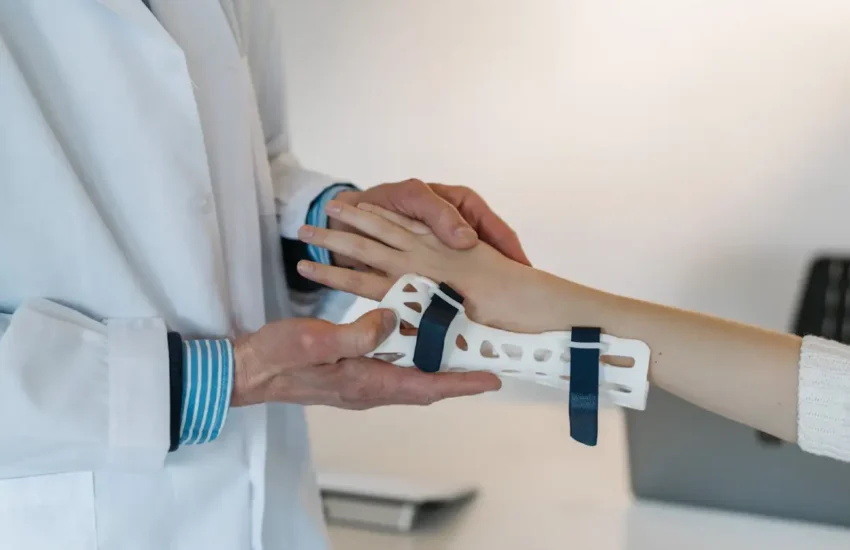From Nuisance to Health Hazard: Why You Should Take Pigeon Control Seriously
Pigeons, commonly seen in cityscapes, are increasingly becoming a matter of concern globally. While they might appear innocuous or even captivating, unchecked, they can jeopardize our health and comfort. In this article, we’ll delve into the significance of pigeon management, such as professional pigeon control in London, highlighting both the inconvenience and potential health risks they entail.

Pigeon Nuisance: More Than Meets the Eye
Pigeons, with their cooing and distinctive waddle, may appear to be nothing more than a minor annoyance. However, their presence can lead to various issues that affect both your property and your quality of life. Here’s why pigeon nuisances shouldn’t be underestimated:
Droppings Everywhere: Pigeon droppings are not only unsightly but can also corrode building materials over time. The acidic nature of their excrement can damage structures, including roofs, balconies, and statues.
Noise Pollution: While cooing may sound pleasant at first, it can quickly become irritating when dozens of pigeons gather and create a constant ruckus. This noise can disrupt your peace and quiet, especially in urban areas.
Health Hazards for Humans and Pets: Pigeon droppings contain harmful bacteria and parasites, including Salmonella and E. coli, which can pose serious health risks to humans and pets. Accidentally coming into contact with contaminated areas can lead to infections.
The Surprising Health Hazards of Pigeon Infestations
Pigeons, while seemingly harmless, can bring considerable health challenges to your doorstep. Let’s delve into the potential health concerns stemming from pigeon infestations:
Respiratory Concerns: The dust from pigeon droppings, when airborne, can be inhaled, aggravating or causing respiratory ailments like asthma or bronchitis. Those especially at risk include children, seniors, and those with existing respiratory issues.
Allergy Triggers: Proteins present in pigeon feathers, droppings, and remnants might cause allergic reactions in some. Symptoms vary from mild ones like sneezing or itching to more severe reactions such as skin rashes or breathing difficulties.
Disease Transmission: Pigeons harbor several diseases, including avian influenza and histoplasmosis. Accumulated droppings amplify the risk of these diseases transferring to humans.
Taking Action: Why Pigeon Control Matters
Now that we’ve established the nuisances and health hazards associated with pigeons, it’s time to explore why taking pigeon control seriously is crucial for your well-being and the well-being of your community.
Guard Your Property: Adopting pigeon control strategies can be cost-saving in the long haul. By averting property damage, you sidestep hefty repair and maintenance bills.
Maintain Beauty: Pigeons can mar your environment’s visual appeal. Keeping them in check ensures your locality stays pleasing and inviting.
Uphold Health and Safety: Pigeons’ health threats demand attention. By emphasizing pigeon control, you fortify the health and safety of your loved ones, neighbors, and furry friends.
Effective Pigeon Control Methods
Now that we’ve emphasized the importance of pigeon control, let’s explore some effective methods to keep these feathered foes at bay. Remember, prevention is key!
Bird Spikes: Bird spikes are simple, non-lethal devices that deter pigeons from perching on ledges, rooftops, and other surfaces. They make it uncomfortable for pigeons to land, encouraging them to find a more suitable location.
Netting: Installing bird netting can create a barrier that prevents pigeons from accessing certain areas. It’s a humane and effective way to protect your property while allowing pigeons to find alternative roosting spots.
Ultrasonic Devices: Ultrasonic devices emit high-frequency sounds that are unpleasant for pigeons but harmless to humans. These devices can be placed strategically to deter pigeons from gathering in specific areas.
Professional Pest Control Services: When the infestation is severe or DIY methods prove ineffective, it’s best to enlist the help of professional pest control services. They have the expertise and resources to assess the situation and implement appropriate measures.
Steps to Prevent Future Pigeon Infestations
Preventing future pigeon infestations is just as important as addressing current ones. Here are some steps you can take to minimize the risk of pigeons returning:
Regular Maintenance: Keep your property well-maintained. Repair any cracks, holes, or entry points that pigeons could use to access your home or building.
Dispose of Food Properly: Ensure that garbage bins are sealed tightly, and food scraps are properly disposed of to reduce food sources that attract pigeons.
Trim Vegetation: Trim trees and bushes near your property to eliminate potential roosting spots and nesting areas.
Educate Your Community: Spread awareness about the importance of pigeon control within your neighborhood. Encourage your neighbors to take action to prevent infestations collectively.
Conclusion
While pigeons might appear benign, they can shift from being a mere irritant to a genuine health threat if ignored. Recognizing their potential danger to your residence and health is pivotal for effective pigeon management.
By proactively preventing their overpopulation and employing considerate control methods, you safeguard your family, uphold your property’s integrity, and ensure a comfortable living space. The value of pigeon management shouldn’t be overlooked; it profoundly impacts your life’s quality.


